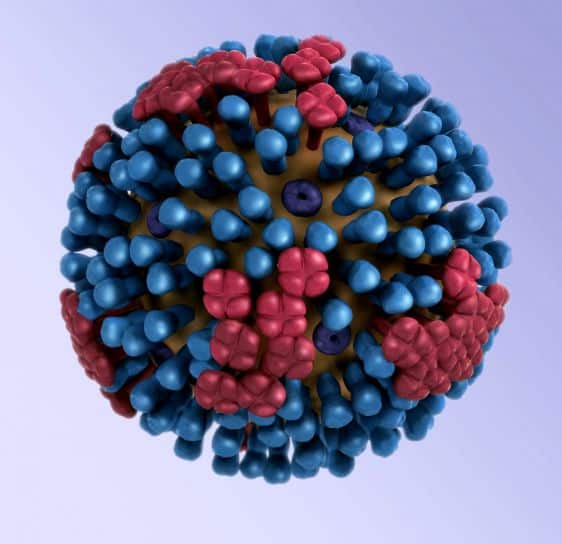
New vaccine provides universal protection against influenza A, study finds
pharmafile | January 24, 2018 | News story | Research and Development | Georgia State University, Vaccine, flu, influenza, pharma
Research led by Georgia State University has enabled the development of a universal vaccine for influenza A viruses, proven to provide long-lasting immunity in mice.
The new vaccine solves the weaknesses of seasonal flu vaccines, which must be updated and changed to keep up with the strains which are anticipated to be most common in a given period and can often prove to be inadequate. For example, in 2009 alone the outbreak of H1N1 flu killed 200,000, in part because of the lack of a readily-available seasonal vaccine. According to the Centers for Disease Control and Prevention, influenza has killed between 12,000 and 56,000 people each year since 2010.
“Vaccination is the most effective way to prevent deaths from influenza virus, but the virus changes very fast and you have to receive a new vaccination each year,” explained Dr Bao-Zhong Wang, Associate Professor in the Institute for Biomedical Sciences at Georgia State. “We’re trying to develop a new vaccine approach that eliminates the need for vaccination every year. We’re developing a universal influenza vaccine. You wouldn’t need to change the vaccine type every year because it’s universal and can protect against any influenza virus.”
Traditional flu vaccines target the exterior head of a virus’ surface protein, hemagglutinin (HA), which in turn teaches the body to produce antibodies against inactivated virus particles and preventing infection. But because the head is highly variable across the range of virus strains, there is a need for a new approach to flu vaccination.
“What we wanted to do is to induce responses to this stalk part of the influenza surface glycoprotein, not the head part,” Dr Wang continued. “This way you’re protected against different viruses because all influenza viruses share this stalk domain. However, this stalk domain itself isn’t stable, so we used a very special way to make this vaccine construct with the stalk domain and had success. We assembled this stalk domain into a protein nanoparticle as a vaccine. Once inside, the nanoparticle can protect this antigenic protein so it won’t be degraded. Our immune cells have a good ability to take in this nanoparticle, so this nanoparticle is much, much better than a soluble protein to induce immune responses.”
The team used the vaccine to immunise mice twice with an intramuscular injection, before exposing them to H1N1, H3N2, H5N1 and H7N9 viruses. It was found that the vaccine provided universal protection against all of these, as well as dramatically reduced the amount of virus in the lungs.
“This vaccine is composed of very conserved domains. That’s the reason why the induced immunity can offer universal protection,” said Dr Lei Deng, first author of the study and a postdoctoral researcher in the Institute for Biomedical Sciences at Georgia State. “The seasonal influenza vaccines induce the dominant immune response against the head domain of the HA molecules, which is hypervariant. That is why we have to adopt new influenza strains for the new vaccine every year. Our vaccine overcomes this problem. For long-term protection, the longevity of induced immunity in human still needs to be tested in further clinical tests.”
The team now hopes to move testing of the vaccine into ferrets, whose respiratory system structure is similar to humans.
Matt Fellows
Related Content

GSK shares new data for RSV vaccine Arexvy
GSK announced positive results from its phase 3 trial which assessed the immune response and …

GSK and Zhifei partner for shingles vaccine promotion in China
GSK has announced that it has come to an exclusive agreement with Chingqing Zhifei Biological …

Moderna shares data from phase 1/2 trial for combination flu and COVID-19 vaccine
Moderna has announced positive interim results from the phase 1/2 trial of mRNA-1083, its investigational …








